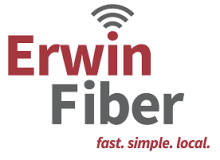Erwin Expanding Again, Moving Into The Mountains
Erwin Fiber is growing in stages and now that the utility in Erwin, Tennessee, has completed phase three of its Fiber-to-the-Home (FTTH) deployment, about half of its electricity customers have access to high-quality Internet access. That’s not all - phase four this spring will bring gigabit connectivity to more rural customers in two nearby mountain communities.
Reaching Out In Steps
All told, Erwin Fiber more than tripled its service area in 2016. A December grant from the Appalachian Regional Commission (ARC) will allow the utility to complete the spring build out, which will serve an additional 680 homes and 30 businesses. The Temple Hill and Bumpass Cove areas located in the mountains outside of downtown Erwin will have access to Erwin Fiber's symmetrical Internet access. Due to the remote character of these neighborhoods, people here had little prospect of obtaining high-quality Internet access from other providers. The 35-mile expansion will cost approximately $400,000.
November’s expansion added 2,200 homes and businesses, while a similar effort last March included 1,300 homes and businesses. Both expansions came after the community successfully experimented with a 2015 pilot project in which the city’s electric utility connected an initial 1,200 customers. The utility needed the infrastructure for the electric system other utilities; it was the right to to invest in the equipment for high-speed connectivity and phone service
Not An Impluse
The municipality of about 6,000 people had considered the investment some 15 years prior but couldn’t afford the investment until recent years when the cost of deployment decreased. In January, Christopher interviewed Lee Brown and John Williams from Erwin Utilities who discussed the community’s project and explained how the fiber infrastructure is benefitting all the utility customers, even those who don’t subscribe to FTTH services.



